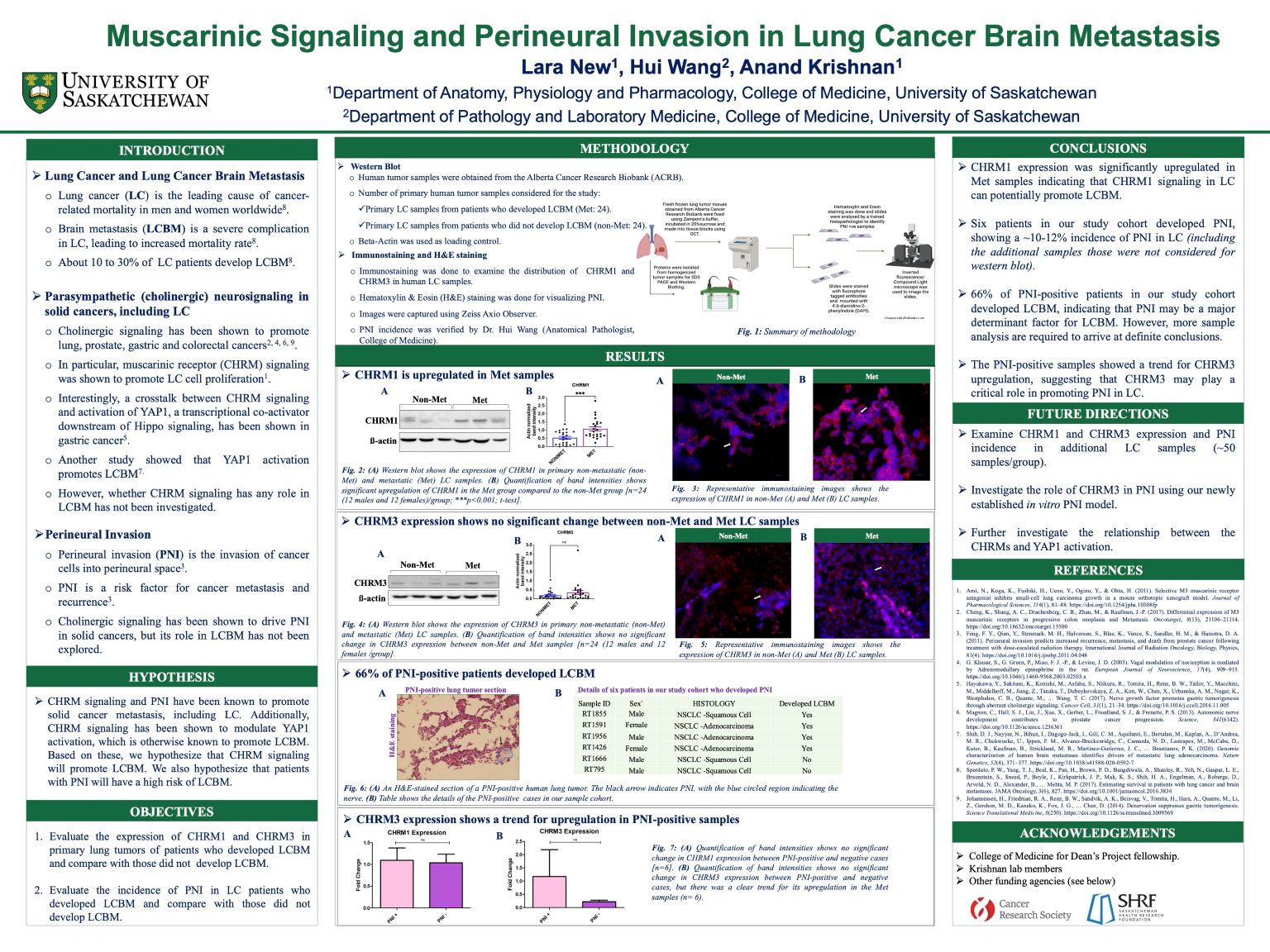
Muscarinic Signaling and Perineural Invasion in Lung Cancer Brain Metastasis
Lara New
Lung cancer (LC) is the leading cause of cancer related deaths worldwide. Brain metastasis is a severe complication that significantly worsens LC prognosis. Parasympathetic
(cholinergic) signaling promotes solid cancers, including perineural invasion (PNI) of cancers, which is a risk factor for metastasis. However, their roles in lung cancer brain metastasis (LCBM) have not yet been fully investigated. In this study, we utilized western blot, Hematoxylin & Eosin staining, and immunostaining to evaluate the expression of CHRM1, CHRM3, and the incidence of PNI in patients who did and did not develop LCBM (n=24 each). We found an increased expression of CHRM1 in patients with metastasis compared to non-metastatic patients, with no significant change in CHRM3 expression found between groups. This suggests a potential role for CHRM1 signaling in promoting LCBM. We found about 12% incidence of PNI in lung cancer with 66% of the PNI positive cases being developed LCBM. This indicates that PNI may also be a major determining factor for LCBM. Overall, this study suggests that cholinergic signaling and perineural invasion may promote LCBM.
